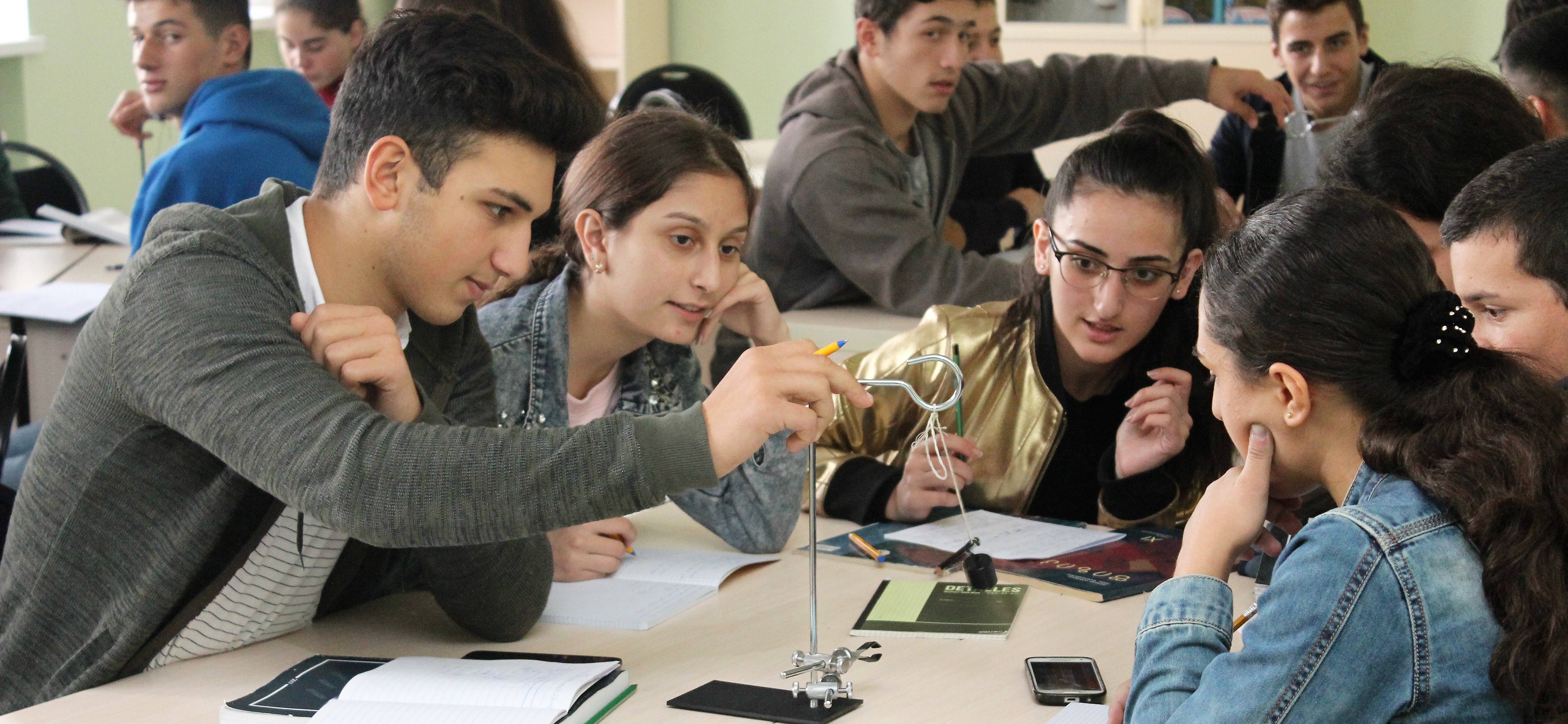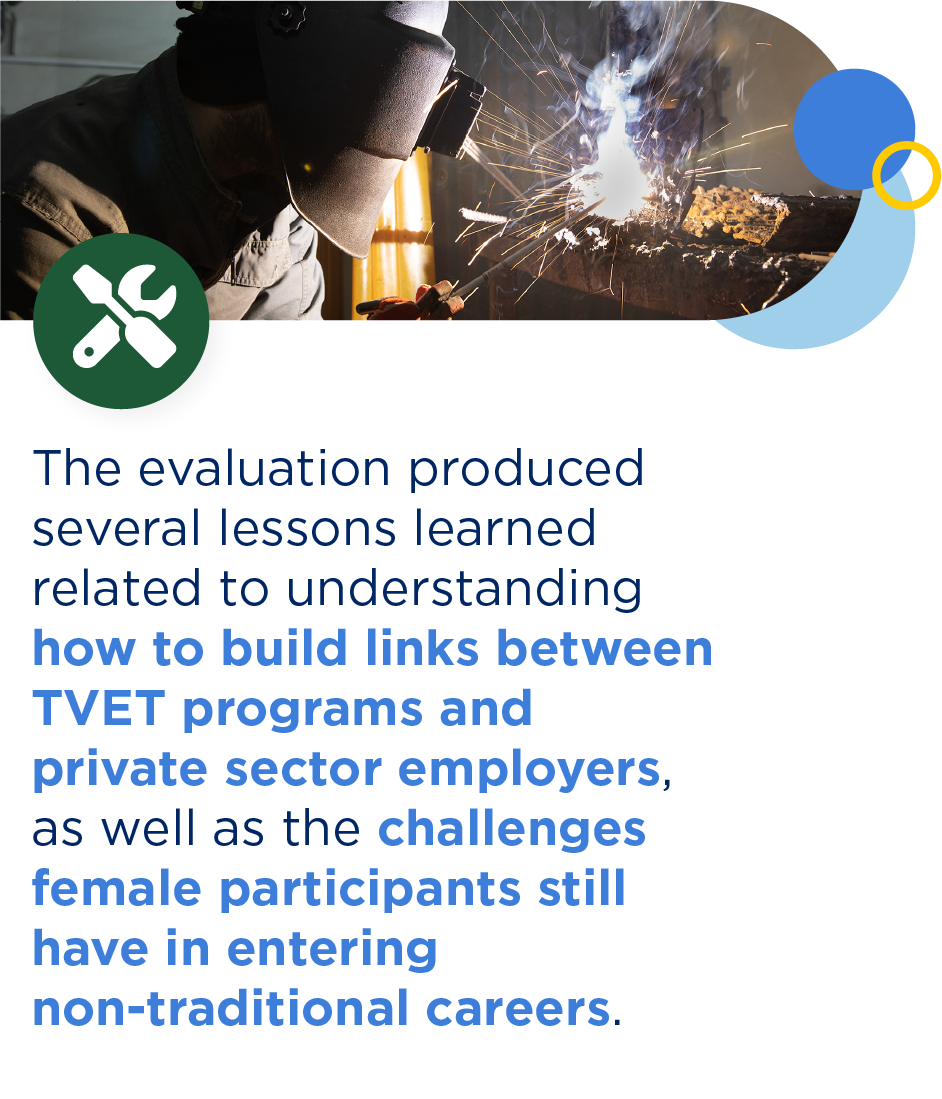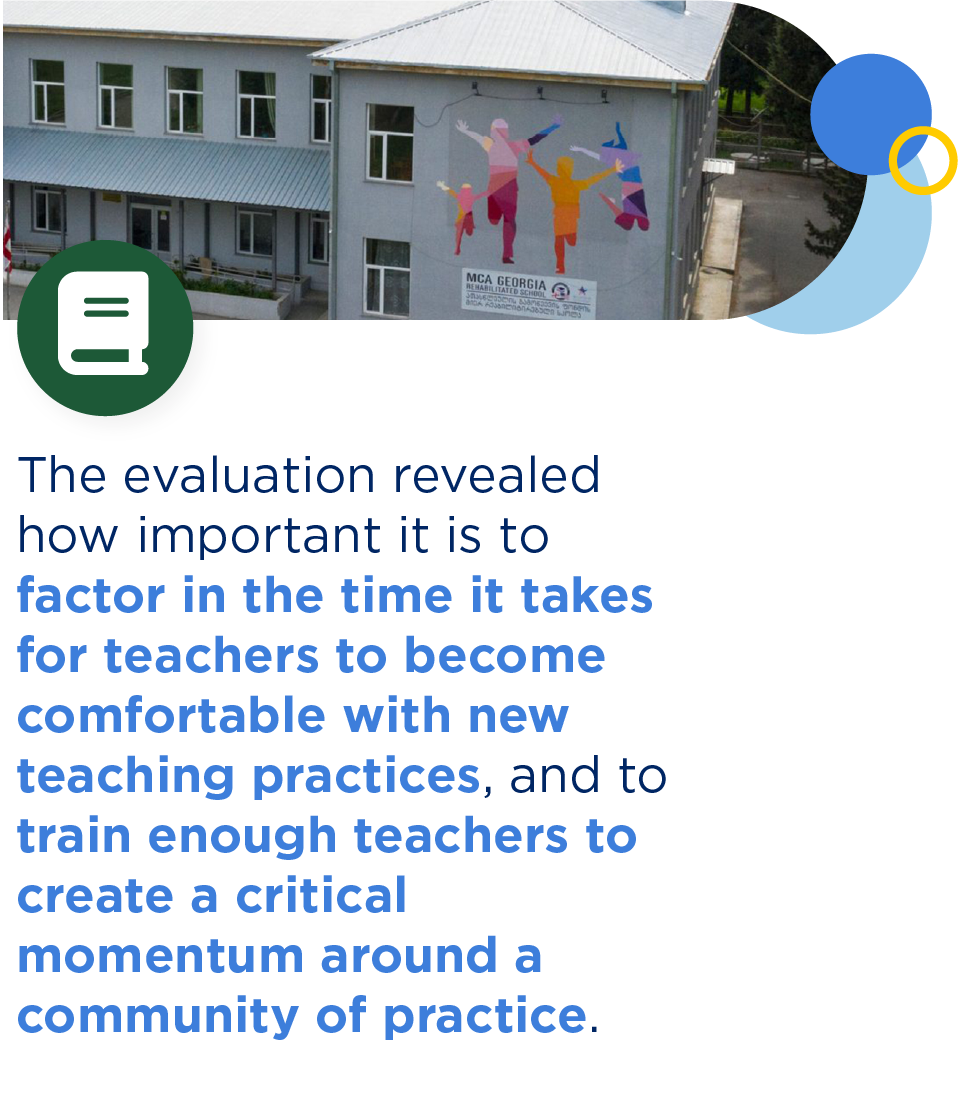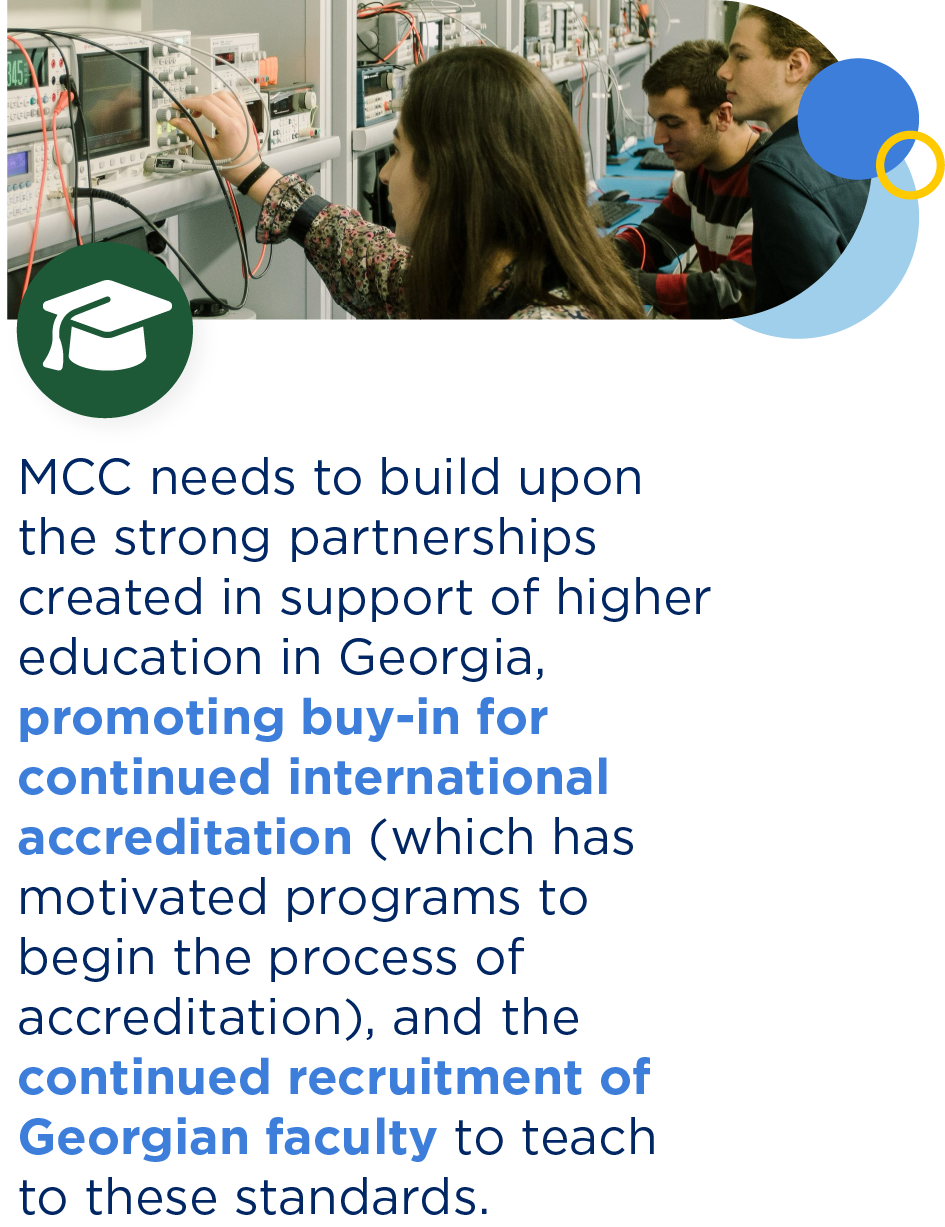
Secondary school students in Georgia conduct a science experiment as part of group work.
Human capital is defined as “the skills, knowledge, and experience possessed by an individual or population, viewed in terms of their value or cost to an organization or country.” MCC’s $139 million Georgia II Compact is a great example of how investing in the skills of young people contributes to a country’s economic growth.
In 2014, MCC and Georgia launched their second compact, which focused exclusively on education. Together, MCC and the Government of Georgia designed investments to equip and rehabilitate schools, train secondary school educators and administrators, support vocational programs tailored to the needs of the labor market, and develop partnerships to modernize STEM education in three of Georgia’s public universities.
Now, with MCC’s commitment to independent evaluations of each of its projects and publishing those evaluations, the results from MCC’s investments in Georgia are arriving.
At an October 2023 learning event in Tbilisi, MCC and its independent evaluators, RAND and Mathematica, presented on the findings from the three projects under the compact, including results of the Improving General Education Quality Project (IGEQ), the Industry-Led Skills and Workforce Development Project (ISWD), and the STEM Higher Education Project. The event was attended by 60 participants from the Government of Georgia (GoG), USAID, US Embassy, World Bank, Millennium Foundation – Georgia, partner universities, and former MCA staff.
Overall, the evaluations found that the projects were successful, providing meaningful benefits to the people of Georgia. The findings generated valuable lessons for new investments in education, both in Georgia and more broadly.
The IGEQ Project showed that improving school infrastructure can have impacts on the quality of classroom learning environments, and that teachers can be motivated to deliver instruction that emphasizes student-centered learning. The MCC TVET (Technical and Vocational Education & Training) programs recruited high numbers of participants into new fields, and while gains were made in integrating women into non-traditional professional programs, more outreach is needed to significantly increase female participation in the future. Finally, the STEM Higher Education Project generated interest in international accreditation of bachelor’s level STEM programs across Georgia.
The October 2023 learning event provided an opportunity to bring government and organizations together to look at compact results holistically, so they could understand interrelated challenges and activities and draw out lessons learned that could lead to program design that fosters long-term, sustainable results. The randomized-control trial of the school rehabilitation work showed that infrastructure investments resulted in significant improvements in learning environments, including air quality, and results of the improved science labs suggested those upgrades could lead to improved student learning. However, resources for operations and maintenance of those schools remain uncertain, which might jeopardize sustainability and long-term impacts.

Similarly, while the evaluation of the ISWD Project found that those who received vocational training were satisfied with the training and gained high-level skills, many of the graduates were not employed in their specific field of study one year after completing the program. Under the compact, 51 technical degree programs and 13 technical certificate programs were developed in 10 competitively selected TVET centers. Today, there are 75 programs (46 degree programs and 29 certificate programs) in those same training institutions, suggesting an increased appreciation of, and demand for, technical training.

The IGEQ project evaluation revealed how important it is to factor in the time it takes for teachers to become comfortable with new teaching practices, and to train enough teachers to create a critical momentum around a community of practice. Several Ministry of Education policies helped bolster the effect of educator training activities and in the future MCC should design interventions that align with existing programs and incentivize teachers to fully participate in the program. In Georgia, this included an early retirement program initiated by the Government of Georgia that allowed younger teachers to use their training to take a leadership role in their respective schools, and the establishment of a career ladder based on competency and professional development as opposed to merely seniority.

The evaluation of the STEM Higher Education Project also identified important factors that can help produce long-term improvements in higher education programs by supporting key enablers, with special emphasis on supporting women in STEM. Lessons learned included identifying the need to build upon the successes and strong partnerships created in support of higher education in Georgia, promoting international accreditation motivates other programs to begin the process of accreditation, and the continued recruitment of Georgian faculty to teach to these standards. In addition, the evaluation revealed the importance of sustaining career development, like employer relations and career placement, and maintaining physical structures such as laboratories and equipment.
With many eyes currently on the region, these findings come at a critical juncture in which donors and governments can decide to use evidence to improve outcomes, sustain successful investments that will continue to improve the education system, and align incentives toward improving learning and human capital. In recognition of the International Day of Education, and reflecting our 20th anniversary, MCC continues to strive towards generating policy-relevant evidence and putting lessons learned to good use—improving lives and spurring economic growth.

